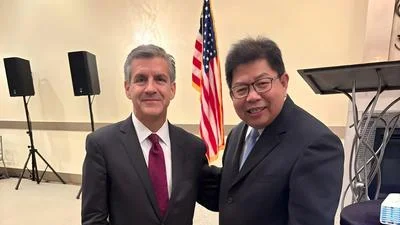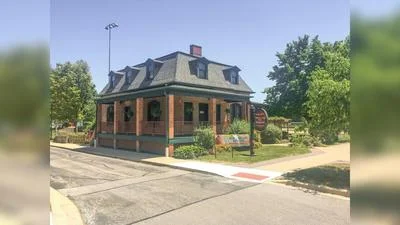https://morguefile.com/photos/morguefile/2/firefighters/pop
https://morguefile.com/photos/morguefile/2/firefighters/pop
Dec. 31, 1887—Chicago. Lakeside Club celebrates its opening with a lavish feast. As told by the Illinois History Journal, the club was formed to serve Jewish members, though most were not Orthodox worshippers, which allowed them to hold the banquet on a Saturday, normally the Jewish Sabbath. The $40,000 structure boasted elegant furnishing, the report said, and was adjacent to a synagogue.s
Jan. 1, 1964—Pasadena, California. The University of Illinois football team defeats the University of Washington in the Rose Bowl. In this 17-7 victory, nearly 100,000 fans watched the team capture its third Rose Bowl win. MVP Jim Grabowski logged 125 yards and 23 carries, assisted by teammate Sam Price’s 55 yards.
Jan. 2, 1898—Springfield. Illinois Central (IC) Railroad Station opens for business. In those days, a stately towered structure like the IC Railroad Station could be had for only $75,000, according to the Illinois History Journal. It remained in service as a train station—the hub for many a Midwestern traveler—for nearly three-quarters of a century. Today, the refurbished structure houses the Abraham Lincoln Presidential Library and Museum.
Jan. 3, 1924—Pekin. An explosion causes 42 fatalities at the Corn Products Refining plant. The early morning disaster left the facility “in ruins,” according to an Associated Press report quoted on GenDisasters.com. The fire’s concentrated heat delayed rescue efforts as a crowd of several hundred onlookers gathered. Many inside the plant perished instantly, while others suffered injuries that took their lives in the hours after the blast. “The disaster, the first to overtake the big plant which covers ten acres or more, is believed to have been caused by a dust explosion,” AP report said.
Jan. 4, 1937—Springfield. Gov. Henry Horner (D) begins his second term. Trained as a lawyer, Horner’s drive to improve “the problems of social and civic welfare” spurred him to a political career. As IllinoisAncestors.org reports, Horner advanced from Cook County probate judge, a position he held for nearly two decades, to his first gubernatorial term in 1932. Remembered for developing a plan to shield veterans’ heirs from probate expenses, Horner also forged a reputation as a skilled mediator of labor disputes.
Jan. 5, 2014—Illinois. A concealed carry law goes into effect, making Illinois the last state allowing residents to carry concealed firearms. Although then-Gov. Pat Quinn vetoed the measure, the General Assembly put together enough votes for an override. According to a Reuters report, the law’s opponents saw its passage as a triumph for the National Rifle Association; it came on the heels of a mass shooting at a school in Newtown, Connecticut. The new law required gun carriers to apply for permits, undergo background checks and complete training.
Jan. 6, 1973—Chicago. Three firefighters die as they battled a blaze in the Forum Cafeteria. The eating establishment on West Madison Street was “the place to be,” according to a description on the website FirefighterNation.com. It opened in 1939 and often drew blocks-long crowds waiting to enjoy its humble cuisine. The fallen first responders were Richard E. Kowalzyk, Timothy Moran and Alfred Stach, members of the Chicago Fire Department.






 Alerts Sign-up
Alerts Sign-up